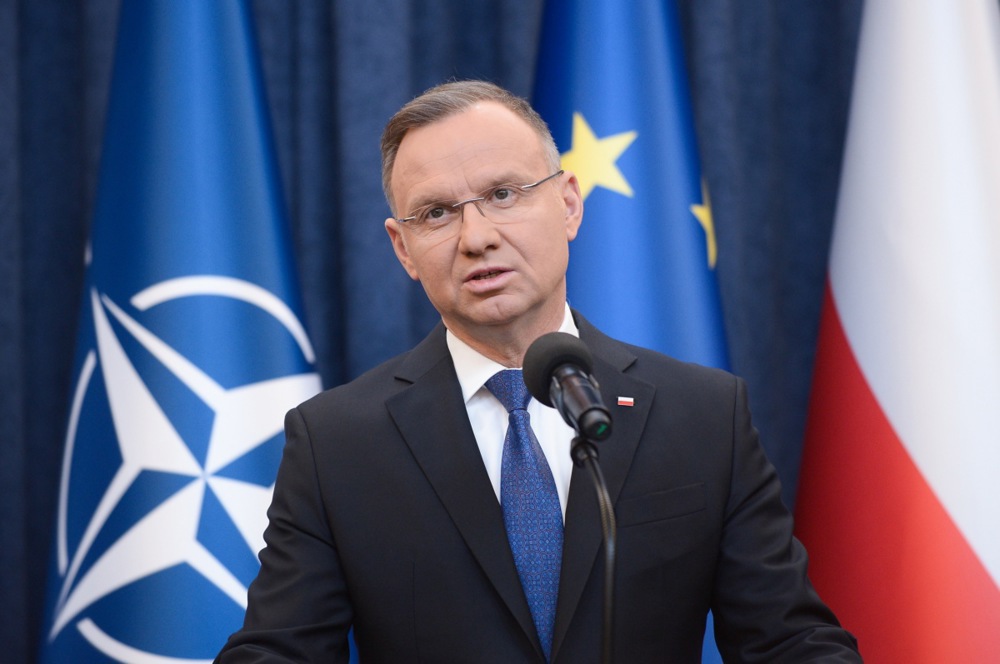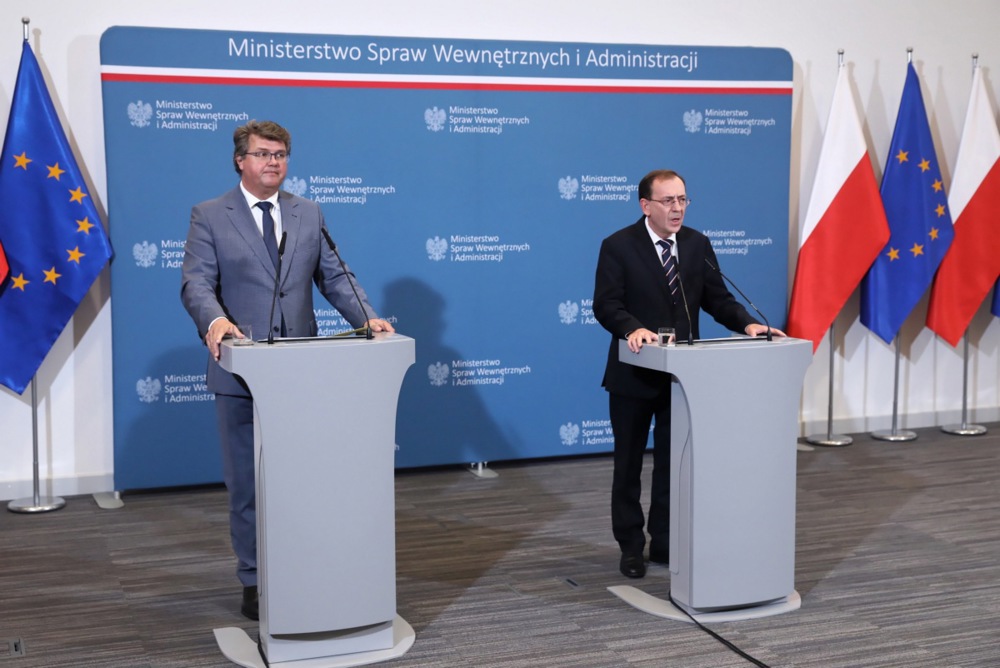Polish prison authorities have decided to force-feed Mariusz Kamiński, one of two opposition MPs from the Conservative (PiS) on hunger strike in prison.
He is to be sustained nasally, despite already agreeing to a saline drip to be administered since he and fellow MP Maciej Wąsik were jailed on January 10.
Kamiński’s son Kacper posted on social media on January 23 that his family had been told of what he described as the “inhumane” procedure.
“The doctor has informed my father that the most inhuman method of nasal feeding has been chosen despite the fact that he had agreed to feeding via saline drip.”
On January 22, Mariusz Kamiński, a diabetic, was taken to hospital with low blood-sugar levels and an “increasingly faint” pulse. He was returned to prison that evening.
His supporters are continuing to urge newly installed Polish justice minister Adam Bodnar to suspend Kamiński’s prison sentence pending the outcome of an ongoing pardon procedure re-instigated by President Andrzej Duda on January 1.
On January 23, Duda aide Błażej Poboży told Brussels Signal: “I can’t imagine that in the dramatic situation we have today that justice minister Adam Bodnar will not free Mariusz Kamiński from further imprisonment.”
Bodnar maintains he first needs to assess relevant documents sent to him by Duda, adding that the President could ensure that both Kamiński and Wąsik were released immediately by directly issuing a pardon instead of undertaking the current proceedings.
Duda contends he had already pardoned the pair in 2015 but that those pardons were declared invalid by a chamber of the Supreme Court last year.
The Constitutional Tribunal, or court, on the other hand ruled that the Supreme Court was not allowed to question the presidential prerogative of pardon and a different Supreme Court chamber also upheld the original pardons.
Talking to Polish tabloid Super Express on January 20, Duda said that if the two MPs’ deteriorating health “can only be stopped by me simply pardoning them again, just to save them, then I will do it”.
Some interpreted that as meaning Duda would not wait for Bodnar to respond to his request and would issue another pardon, even if it meant effectively admitting that his previous one was invalid.
Both Kamiński and Wąsik claim they are political prisoners but the Government maintains they were jailed as result being convicted for abusing their power while heading Poland’s anti-corruption office almost a decade ago.
The original convictions date back to 2015 and were appealed against. Before the appeals could be heard, Duda decided to pardon the two MPs as, he argued, they had both been engaged in a “sting” against officials in the ministry of agriculture – who were later convicted of corruption.
The Ministry of Justice on January 23 said it would submit the necessary documentation to Duda to issue a new pardon within the “next two days”.
That will not resolve the full controversy, many say, as there is still the issue of whether or not the two are actually still MPs.
According to the Speaker of Parliament Szymon Hołownia, the fact that they were convicted has invalidated their parliamentary mandates.
This is not the view held by Duda or the MPs’ party, the PiS.





